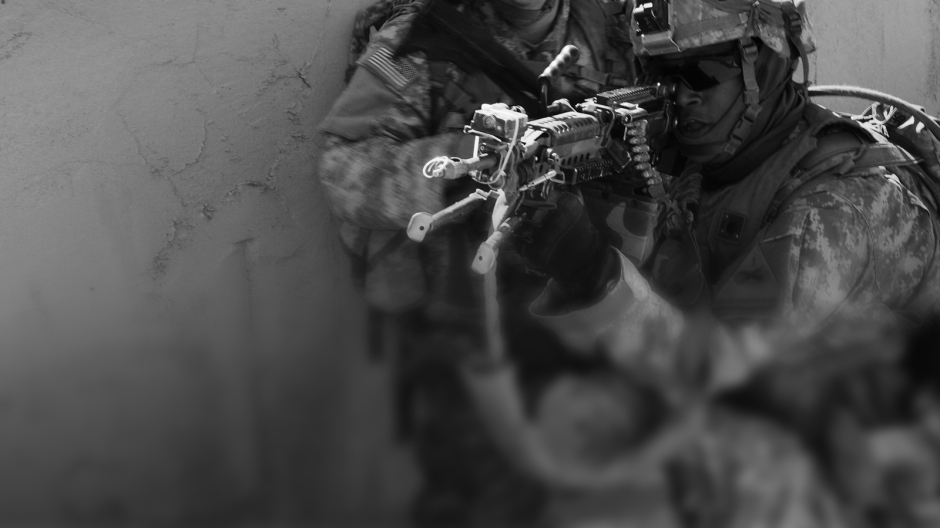Life sometimes throws a curve
There are times throughout one’s life that something happens, something so horrendously impactful that it forces one to simply stop in their tracks and reflect on what just happened. For most, the event is a tragedy or crisis where one feels a significant loss – it could be a life or lives, a limb, or even a friendship, etc.
Recently, the Navy has suffered some tragic events that has lead the Chief of Naval Operations (CNO) to call for an Operational Pause across the Fleet. Of course, in our business of defensive cyberspace operations, we cannot literally stop operations; however, leaders across our command were challenged to meet with their smaller teams (departments/divisions) and reflect upon the following:
- Are we doing things right?
- Are we doing the right things?
The first question addresses our Measure of Performance (MOP). It is not unusual for many of us to get so bogged down into the minutiae of our daily routines that we don’t stop to think about HOW we are doing what we are doing. We are just DOING without thought or reflection. Routinization causes complacency. We may find that we are doing things right, while some of us are not and we need to adjust.
The second question addresses our Measure of Effectiveness (MOE). Is what we are doing making an impact in accomplishing our goals and mission? Are we effectively helping others in accomplishing their goals? All too often we take on more and more responsibilities, our to-do list growing ever longer each day with very little thought to prioritization, and each task simply becomes a check in the box to take off our list, rendering WHAT we do ineffective.
As leaders in our field, it is our responsibility to ask these questions frequently (or some version of it). Our monthly Thinkshops is designed to do just that — we ask both a performance and effectiveness question in the framework of an opportunity, “How might we improve… [insert topic of interest]?” We discuss processes, programs, or general observations or problems across our command and come up with creative ways to develop solutions to improve or fix them. We hold weekly Nerdfest in which we discuss and identify operational problems and concerns and discuss possible solutions. And finally, the goal of our Innovation Cross-Functional Team is similar with more focus on specific mission-related topics of interest and a formal process for pitching these ideas to leadership and implementation. I mention these to show that we have implemented various ways in which we do some reflection -however, the events still merit us to pause and reflect.
On a personal level, I have taken an operational pause to reflect on similar questions – Is WHAT I am doing fulfilling my purpose? And HOW am I doing in getting closer to that purpose? I just finished my new favorite book, “A Selfish Plan to Change the World: Finding big purpose in big problems” by Justin Dillon (go to Books tab for link). To help frame my questions, I use Dillon’s fascinating concepts of riot and poverty of means. Your riot is your purpose, your passion:
“Your riot is a place inside of you where you stand up and say that something is wrong. It’s where you turn your indignation into action. Simply put, finding your riot is how you find your purpose” (p. 15).
One way to find that purpose or passion, Dillon proposes using, what I find is a unique lens, the poverty of means perspective. He describes it in much more detail in his book, but basically defines it as:
“the scarcity of an action or system required to change an undesirable situation” (p.45).
I struggle with finding my riot at times, not because I have yet to find what it is I am passionate about – in fact, I think my problem is that I have too many riots. In whatever I do – I give it my all and then some. Many days I am physically exhausted. I tend to make everything I do – particularly my work – my riot because no matter if I am working in a nursing home or in a Navy command, I see the poverty of means around me, so then I strive to improve or change it. What the pause has forced me to do is be completely honest with myself: as much as I enjoy where and what I am doing at this time, I am still left feeling hungry for something more, something different. What that is exactly, I have yet to discover, but that I need to do more actively work on getting closer to finding it.
I am grateful for the opportunity of an operational pause — not the events that caused it of course — but I truly believe it will be good for each of us on a personal level, for our team, and the Fleet at large. We cannot simply pause to mourn those we lost – though we must and we will – but we must dig deep and reflect. Be honest with ourselves and each other — don’t just point the finger and play the blame game. Open the lines of communication up and down the chains of command, raise your voices, allow voices to be are heard and truly listened to them (especially those closest to the deckplates). More importantly, LEARN from what is revealed or identified. It is then the responsibility of our leaders — across our command, the Fleet, and our government to follow through with ACTION.
When was the last time you took an operational pause either in regards to your work or another personal matter? Perhaps it’s time.
Source: Operational Pause
